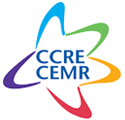
Georgia Unitary state
| GEORGIA | / STRUCTURES |
Structures and competences
Local level :
60 municipalities (minucipaliteti) and 12 self-governing cities (tvitmmartveli qalaqebi)
The municipal or city assembly (sakrebulo) is the local government’s legislative deliberative body and is composed of members elected for a four-year term, via a party-list system and from single mandate constituencies. This assembly controls the activities of the municipal or city board and elects the board’s chief executive officer. It also reviews and approves the local budget, approves local socio-economic development plans and introduces taxes and fees as well as any other measures defined by law. The assembly can set up committees such as the legal affairs committee, the social affairs committee and the finance and budget committee.
The municipal or city executive branch is represented by a mayor (in cities) and a gamgebeli (in municipalities), elected by direct elections with 50% of electoral barrier threshold. The executive branch is composed of the heads of several structural and territorial units present in each local government and implements decisions taken by the municipal or city council. The mayor / gamgebeli is the supreme official of city/municipality.
The chairman of the municipal or city assembly (sakrebulos tavmjdomare) is elected by and from within the municipal or city assembly for a period of four years. The chairman organises the work of the municipal or the city assembly and approves decisions of the council.
The capital city of Tbilisi* also exercises competences delegated by central government agencies, including military recruitment, emergency response and state of emergency, environment and legalisation of property. The city of Tbilisi is divided into ten administrative districts. Each district has its own executive branch headed by a chief executive officer nominated by the mayor.
The remaining local government units in Georgia have limited delegated powers, which extend mainly to military procurement and sanitation. The tasks are delegated from specific ministries by a legal decision or agreement between the relevant ministry and a particular municipality.
There are two autonomous provinces in Georgia: the autonomous republics of Abkhazia and Adjara.
*Tbilisi has also broader functions such as the organisation of local business support programmes and social protection. The mayor is the head of the municipal cabinet, which is composed of the mayor, three vice-mayors and the heads of the sectoral departments, in which can be included transport, social affairs and architecture. Each department has its own head and staff.
COMPETENCES
- Municipal property
- Municipal service provision
- Land resources
- Municipal budget
- Local taxes
- Waste management
- Spatial planning
- Pre-school education
- Public transport
- Fire safety





